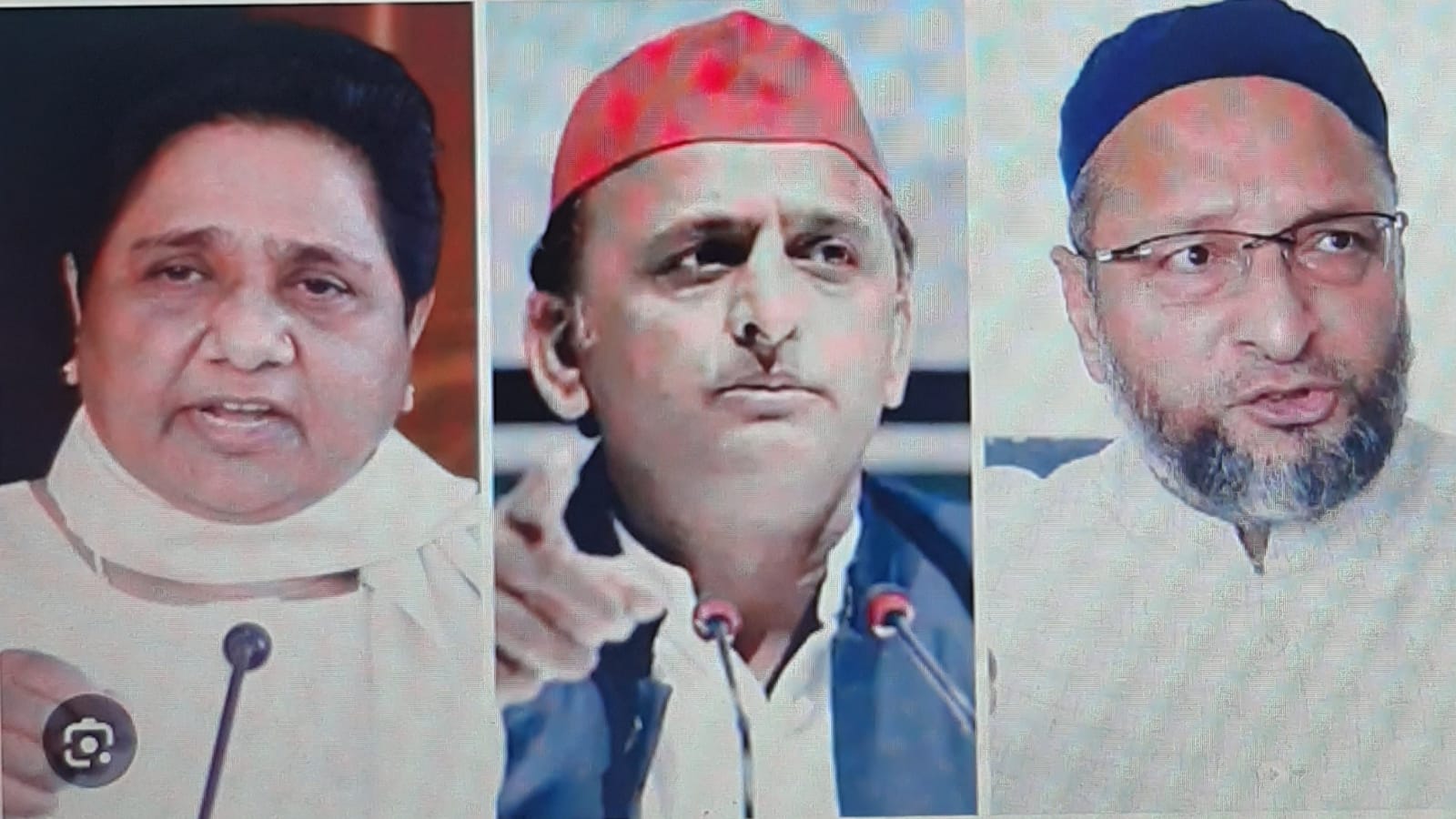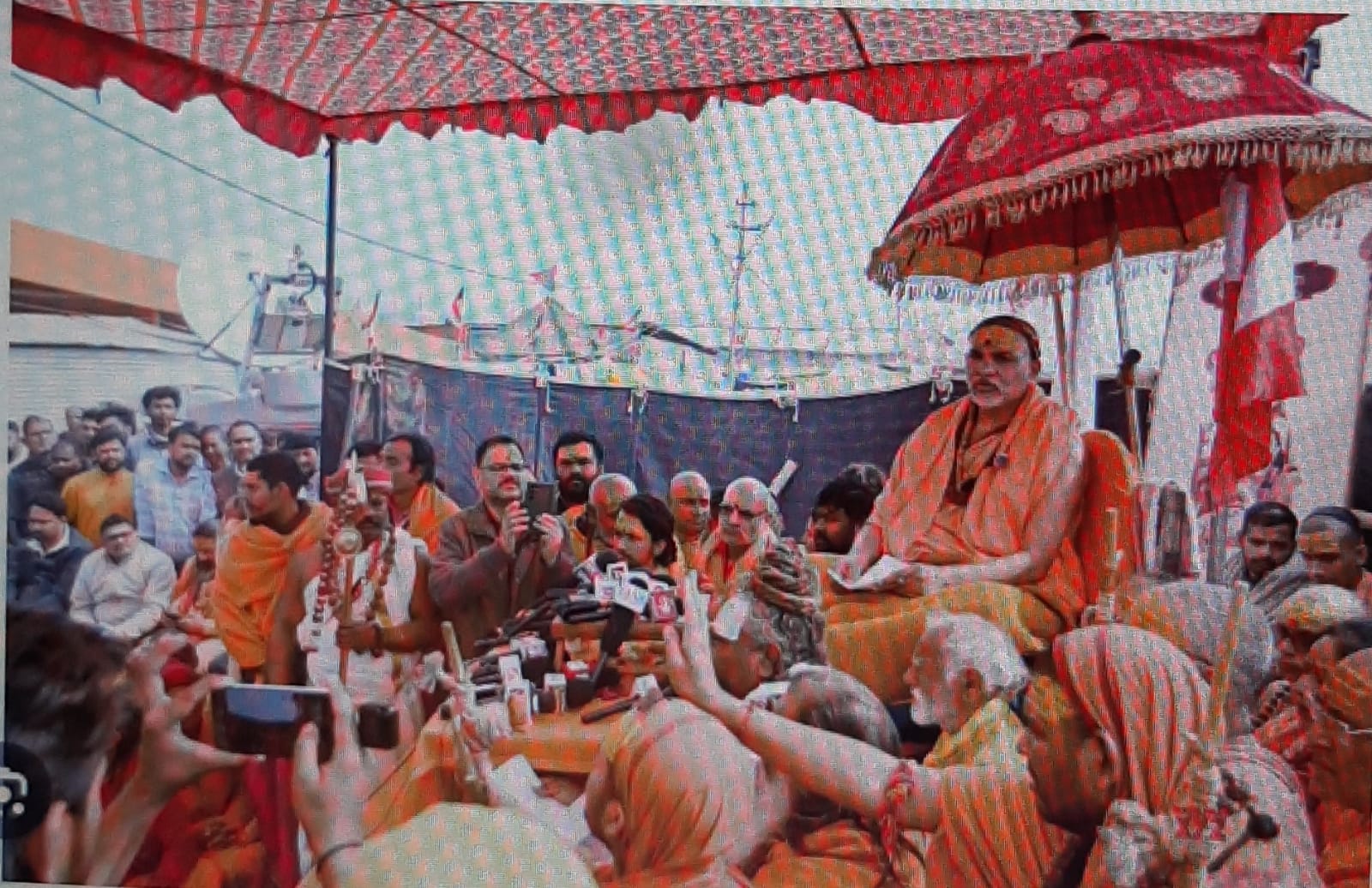
Though “Talaq-e-Hasan” has guarded Quranic support, it has not given liberty to husband to throw her wife during the three-month period. She has all the rights to stay in her house and arbitration should be done by both sides in her presence. Legal notice through lawyer as has been projected before the apex court is against the Sharia. There are also large number of reports of clerics sending such notices and thereafter threatening the woman to issue “divorce”. It is absolutely wrong, writes M Hasan.
Lucknow: After abolition of “triple Talaq” in 2017 another form of divorce- Talaq-e-Hasan- has come for legal scrutiny before the Supreme Court, which has expressed dismay over the prevalence of this type of annulment of married life in the Muslim community.
Nearly eight years ago the apex court had outlawed the instant talaq “triple talaq”, and subsequently in 2019 the NDA government had enacted law for the protection of Muslim women. But now the system of “Talaq-e-Hasan” has come before the court for adjudication. The Supreme Court has hinted at considering abolishing Talaq-e-Hasan, a form of the talaq practice by which a Muslim man can divorce his wife by saying the word “talaq” once for three consecutive months. The top court termed the practice as “gross discriminatory”.
The court was hearing a Public Interest Litigation (PIL) petition filed by journalist Benazeer Heena in 2022 seeking that the practice is declared unconstitutional as it is irrational, arbitrary and violative of Articles 14, 15, 21 and 25 of the Constitution. The court has summoned the stakeholders, including the All-India Muslim Personal Law Board (AIMPLB) to present their views on “talaq-e-Hasan”. The board was also a party when triple talaq was abolished. There is no doubt that triple talaq was an innovation and had no qur’anic support. Though Talaq-e-Hasan as explained in the holy book has got legal sanctity, they way it is being misused now by involving lawyers and clerics to get rid of wife has no “sharia support”. Under the prevailing condition, it has become as worst as the discarded triple talaq. The AIMPLB in its “compendium of Islamic Laws” has also clarified about proper application of Talaq-e-Hasan.
In fact, contrary to Quranic injunction, it is a complex historical situation which has landed the Muslim community in a bind. Though most detestable thing, Quran has permitted divorce as a last resort. The divorce, with well laid out Quranic guidelines, has been allowed with certain conditions. Instead of rushing to divorce, Quran has laid greater emphasis on arbitration to solve the problems of couple. The petitioner Benazeer has told the court that there was complete violation of Quranic guidelines while pushing her out of wedlock. The apex court has now summoned her husband to explain the situation himself.
The guidelines of holy book are very clear and specific. It lays stress on active involvement of both sides to look into the problem and first try to solve it. According to Quran divorce could only be the last resort. The guidelines call for arbiters from both sides. “And if you fear a breach between the two, then appoint a judge from his people and a judge from her people; if they both desire agreement Allah will effect harmony between them, Surely Allah is knowing, aware.” (Surah Nisa 4:35). The command of the verse is clear and emphatic. The two arbiters however do not have the power to divorce the couple, except in the case the couple has appointed them as their attorney to perform divorce if the reconciliation fails. The Quran further says “then keep in good fellowship or let (them) go with kindness” (Surah Baqarah 2:229).
Further Surah Talaq (65: 1-2) is very specific about law of divorce and has issued stern warning to its violators. “O Prophet! when you divorce women divorce them for their prescribed time and calculate the number of the days prescribed and be careful of (your duty to) Allah, your lord. Do not drive them out of their houses nor should they themselves go forth unless they commit an open indecency and these are the limits of Allah, and whoever goes beyond the limits of Allah he indeed does injustice to his own soul. You do not know Allah may, after that, bring about reunion. So, when they have reached their prescribed time then retain them with kindness and call to witness two men of justice from among you”.
It is thus obligatory for her to live in that same house where she lived before the divorce, if during this period (three months), the husband wants to reconcile with her the wife cannot deny. During this period the husband is obliged to pay her maintenance. The verse Surah Baqarah (2: 228) says “and divorced women should keep themselves in waiting for three courses and it is not lawful for them that they should conceal what Allah has created in their wombs, if they believe in Allah and the last day”. Divorce is not permitted if the wife is in menses, after her menses are over the husband must not have sexual relations with her. Apart from this the husband cannot divorce except in the presence of two “just witnesses”. In most cases it is difficult for man to fulfill these essential conditions easily. Thus, throwing out wife first and then send notice through lawyer or cleric at the interval of one month is not legal under Islamic law.
Surah Baqarah (2:229) says “divorce may be (pronounced) twice, keep them in good fellowship or let them with kindness”. It means a man has the right to reconcile within a specified period which is only twice. If after the second divorce he reconciles but again pronounces divorce for the third time he cannot go back to her during the waiting period. The verse Surah Baqarah (2: 230) further says: So if he divorces her she shall not be lawful to him afterwards until she marries another husband”. Further Surah Baqarah (2: 232) says “when you have divorced your wife and she has reached her prescribed term either retain her with honour or release her in kindness. Donot retain her by force to harm her. Whosoever does that wrongs himself”.
Ayatollah Shaykh Hussain Hilli has dealt in details in his treatise “Conjugal Rights” on the issue. He said from these verses a general rule could be deduced that a person either has to retain his wife and carry out his duties and obligation properly or to release her and sever the conjugal ties. From Islamic point of view there is no third alternative, said Ayatollah Hilli. Allama Murtaza Mutahiri had also taken same line in his Nizam-e-Huqooq-e-zan dar Islam (Women and her rights in Islam). So as per Quranic rules it is three month long drawn cumbersome exercise to divorce his wife. Abu Daud in his “Sunan” has reported the Prophet Mohammad as having said “ Allah has not permitted anything more hateful that divorce”.
Though “Talaq-e-Hasan” has guarded Quranic support, it has not given liberty to husband to throw her wife during the three-month period. She has all the rights to stay in her house and arbitration should be done by both sides in her presence. Legal notice through lawyer as has been projected before the apex court is against the Sharia. There are also large number of reports of clerics sending such notices and thereafter threatening the woman to issue “divorce”. This is sheer calumny.
(M Hasan is former Chief of Bureau Hindustan Times, Lucknow)









